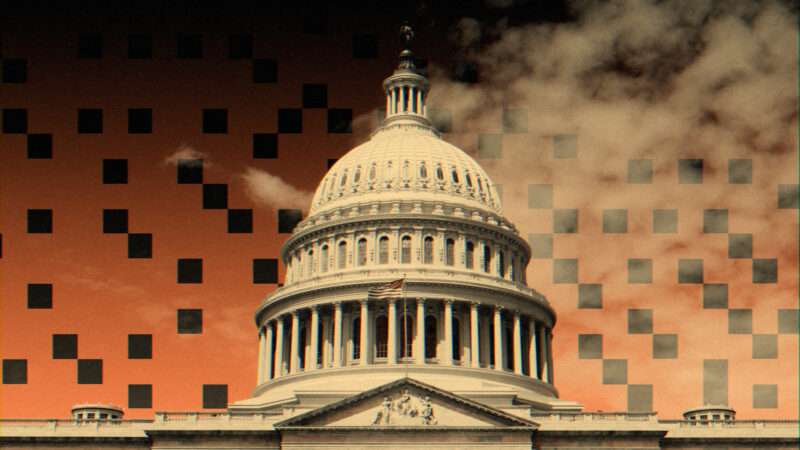
Americans value community engagement far less than they did a quarter-century ago, according to a new poll from The Wall Street Journal and research group NORC. The survey further found sizable declines in Americans' attachment to other traditional American values, particularly since 2019. (Although the apparent sharpness of this trajectory, if not the poll's assessment of Americans' priorities, may be due to methodical inconsistencies, writes pollster Patrick Ruffini.) Republicans were more likely than Democrats to say traditional values are "very important"—e.g., "patriotism" (59 to 23 percent), religion (53 to 27 percent), and "having children" (38 to 26 percent). Not so for "community involvement," which just 25 percent of Republicans labeled "very important," compared to 32 percent of Democrats (27 percent overall).
"The decline of Americans' participation in local civil society institutions—from churches to school parent groups—may vary year-over-year but must be considered a long-term trend," the American Enterprise Institute's Howard Husock tells Reason. This long-term breakdown of civil society—of local, private associations—largely in lower-class communities and largely since the 1960s, has been well documented in such works as Robert Putnam's Bowling Alone (2000), Charles Murray's Coming Apart (2013), and Timothy P. Carney's Alienated America (2019).
While the trend toward civil detachment is surely propelled by many factors, Husock singles out the government's ever-growing involvement in citizens' everyday lives. "One must be mindful of this insight from the late sociologist Nathan Glazer, who wrote…of 'the simple reality that every piece of social policy substitutes for some traditional arrangement, whether good or bad, a new arrangement in which public authorities take over, at least in part, the role of the family and neighborhood group, of voluntary associations,'" he says. "Put another way, government social programs have crowded out civil society."
And government has, indeed, expanded aggressively in recent decades. Since 1970, the federal government's yearly outlays have ballooned from approximately $195 billion to above $6 trillion (more than a 30-fold increase). In the past two decades, federal agencies have codified 114,821 final rules, according to the Competitive Enterprise Institute's "10,000 Commandments" report for 2022. The totality of federal outlays and regulatory costs in 2021 comprised 36 percent of the economy, the report notes. "If it were a country, U.S. regulation would be the world's eighth-largest economy (not counting the United States itself ), ranking behind France and ahead of Italy," it adds.
The federal government's subsidy programs almost doubled from 1990 to 2020, leaping from 1,176 to 2,249. From 1990 to 2018, federal aid-to-state programs—e.g., for agriculture, education, and energy projects—spiked from 463 to 1,386.
This era of bloated government is also one in which technological advances make social self-isolation increasingly easy, perhaps even attractive to some. "In a world before radio, before television, before we had more than three networks, before inexpensive travel, there were just fewer options for leisure time," says David Boaz, a distinguished senior fellow at the Cato Institute. "Now, with the vastness of the world available to us on screens, it's easier to stay home."
The internet has facilitated the creation of a new sort of civil society, however. "Social media has also made it possible for people to find community online, among people they would never have met," Boaz notes. "Libertarians, gay or trans people, people with rare diseases, fans of obscure bands or fading hobbies can find community and comfort in a way they couldn't before."
The post Poll Finds That Americans Care Less About 'Community Engagement.' Government Is Largely to Blame. appeared first on Reason.com.







